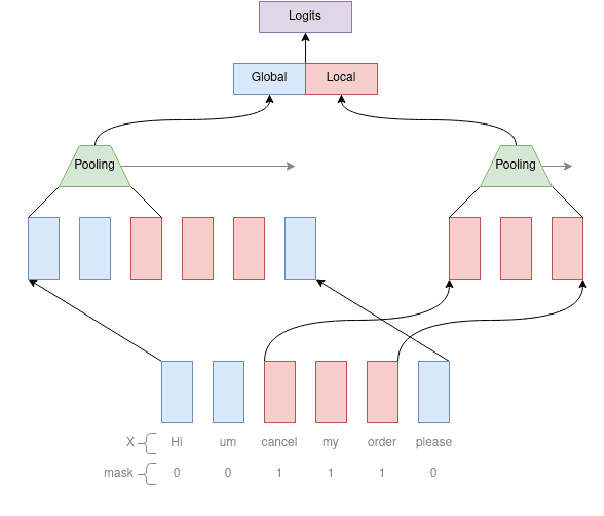Intent Features for Rich Natural Language Understanding
Paper and Code
Apr 21, 2021



Complex natural language understanding modules in dialog systems have a richer understanding of user utterances, and thus are critical in providing a better user experience. However, these models are often created from scratch, for specific clients and use cases, and require the annotation of large datasets. This encourages the sharing of annotated data across multiple clients. To facilitate this we introduce the idea of intent features: domain and topic agnostic properties of intents that can be learned from the syntactic cues only, and hence can be shared. We introduce a new neural network architecture, the Global-Local model, that shows significant improvement over strong baselines for identifying these features in a deployed, multi-intent natural language understanding module, and, more generally, in a classification setting where a part of an utterance has to be classified utilizing the whole context.
 Add to Chrome
Add to Chrome Add to Firefox
Add to Firefox Add to Edge
Add to Edge